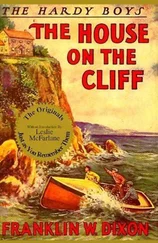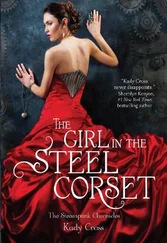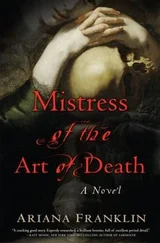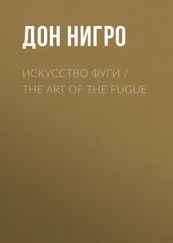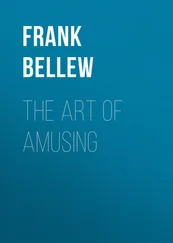Frank Abagnale - The Art of the Steal
Здесь есть возможность читать онлайн «Frank Abagnale - The Art of the Steal» весь текст электронной книги совершенно бесплатно (целиком полную версию без сокращений). В некоторых случаях можно слушать аудио, скачать через торрент в формате fb2 и присутствует краткое содержание. Год выпуска: 2001, ISBN: 2001, Издательство: Broadway Books, Жанр: Старинная литература, на английском языке. Описание произведения, (предисловие) а так же отзывы посетителей доступны на портале библиотеки ЛибКат.
- Название:The Art of the Steal
- Автор:
- Издательство:Broadway Books
- Жанр:
- Год:2001
- ISBN:9780767910910
- Рейтинг книги:4 / 5. Голосов: 1
-
Избранное:Добавить в избранное
- Отзывы:
-
Ваша оценка:
- 80
- 1
- 2
- 3
- 4
- 5
The Art of the Steal: краткое содержание, описание и аннотация
Предлагаем к чтению аннотацию, описание, краткое содержание или предисловие (зависит от того, что написал сам автор книги «The Art of the Steal»). Если вы не нашли необходимую информацию о книге — напишите в комментариях, мы постараемся отыскать её.
The Art of the Steal — читать онлайн бесплатно полную книгу (весь текст) целиком
Ниже представлен текст книги, разбитый по страницам. Система сохранения места последней прочитанной страницы, позволяет с удобством читать онлайн бесплатно книгу «The Art of the Steal», без необходимости каждый раз заново искать на чём Вы остановились. Поставьте закладку, и сможете в любой момент перейти на страницу, на которой закончили чтение.
Интервал:
Закладка:
ONCE A CON ARTIST . . .
And so I had turned things on their head. I had converted something negative into something positive. I had found a way to meld my expertise with social good. I still had all the needs that had made me a criminal. I had simply found a legal and socially acceptable way to fulfill those needs.
In a certain sense, I’m still a con artist. I’m just putting down a positive con these days, as opposed to the negative con I used in the past. I’ve merely redirected the talents I’ve always possessed. I’ve applied the same relentless attention to working on stopping fraud that I once applied to perpetuating fraud.
Living this way is much better than life the wrong way. I feel I’ve been handed a rare and precious gift. Clearly, I’m in a flourishing industry. For so many people, fraud has become the tactic of maximal gain. Fraud has grown so enormous throughout the world that it touches everyone. To be honest, it will never go away. If I lived to be four hundred years old, I’d still have a good job.
One of the nice things about my new life is that I’m making more money trying to prevent fraud than I ever did by committing fraud. Going straight does pay.
Estimates are that businesses lose an unprecedented $400 billion a year from fraud of one sort or another. I’m not talking about armed robbery, burglary, or narcotics, but fraud. It’s a staggering sum, equal to twice the budget of the U.S. military. If we were able to do away with fraud for just two years, we’d erase the national debt. We’d pay off Social Security for the next one hundred years.
Today bank tellers and salespeople are asked to accept so many different forms of payment, not just cash and checks but traveler’s checks, credit cards, debit cards, money orders, NOW accounts, and credit union share drafts. Each and every one of them is susceptible to fraud. And it’s not only embezzlement of money that’s a problem. It’s also embezzlement of information. Because information has become extremely valuable. And so far as restitution is concerned? Unheard of.

About a third of that $400 billion is from embezzlement, employees stealing from their employer. Out of embarrassment, the vast majority of companies never report these thefts to the police. They merely fire the employee, then tell human resources that if they receive a call about this person, say that they worked here but no longer work here. Consequently, the person goes on to steal from somebody else.
One of the things that always amuses me is that back when I was on the other side of the law, it was harder to commit fraud than it is now. You’d think it would be the opposite. And five years from now, it will be easier than it is today. And that’s because of one word—technology. Technology breeds crime and it always has. Thirty-five years ago, if I had to make a check, I literally had to print the check, and so I had to be a skilled printer. I had to know how to do color separations, make negatives, and make plates. It was very time-consuming and tedious. Today, sitting at home in an apartment with a PC, a scanner, a color printer, and a color copier, you can reproduce just about any type of document, including hard cash.
So when people ask me, if I were a con artist today, what would be different? I tell them, “Instead of making $2.5 million, I’d make $20 million. It’s that much easier.”
And we look on white-collar crime a lot differently. China, many years ago, printed a warning on its currency that whoever forged counterfeit money would be beheaded. Until the early 1800s, forgery in England qualified as a hanging offense. Justice got a bit more civilized, but thirty-five years ago you at least got sent to prison. Today, I’d probably get probation or community service, and maybe have to make some restitution. That’s not deterrence, that’s encouragement.
It’s a dark, morally ambiguous world today, but one problem we have in our society is that people don’t really care if some big company was embezzled for $100,000. They figure that’s the company’s problem; they’ve got billions. Instead, people want to know what law enforcement is doing to clear the streets of murderers, rapists, drug dealers, and other violent criminals. People want them off the street, because they pose a physical threat. If you ask them about some guy selling counterfeit Gucci bags for twenty bucks down by the supermarket, their reaction is, “Well, I don’t care about that. If the purse looks good, I’ll buy one myself.” In addition to the cost of fraud, counterfeit goods are responsible for $350 billion in losses in the United States every year, but people don’t care about the problem because they think it doesn’t really affect them. What they don’t understand is that ultimately, it does affect them. It means we all pay higher fees for goods and services.

The police are frustrated. They complain that if they go out and arrest a check writer, then the district attorney doesn’t want to fool with the guy because it’s not a high profile case. The guy just wrote some bad checks. If they do prosecute him, the judge says the prison is full. He can’t put this check writer behind bars; he needs the cells for murderers and rapists, the really scary guys. Thus, something like 98 percent of forgers go free. Prosecutors have a benchmark. Rarely will they prosecute a fraud of less than five thousand dollars. So criminals know that if they stay under the benchmarks, they’re safe.
There’s no reason to rob a bank the old-fashioned way, with a mask, a gun, and a prayer. Why go and stick a gun in someone’s face? You’re talking about armed robbery, ten to twenty years. You could end up shooting someone. Someone could shoot you. And for what? The average bank robbery in 1998 and 1999 netted less than one thousand five hundred dollars. You’re a lot better off doing your robbing with the point of a pen. Why not walk in and cash a fraudulent check for twenty thousand dollars? Maybe you’d get six months in the county jail, if they caught you, if they prosecuted you, if they sent you to jail. And so the machinery of fraud functions almost untouched.
Another big difference is, thirty-five years ago you had to be a con man with a con man’s idiosyncratic personality. You had to be facile. You had to be persuasive, with good improvisational skills, and you needed icy self-control. You were taking something and replicating it, not perfectly, and you had to make someone believe it was the real thing, make them believe it sufficiently that they would cash it. Today, criminals can make a traveler’s check or counterfeit bill that is so good that it doesn’t take any acting skills to walk up to a teller and pass it off as the real thing. Someone who truly looks like a crook can get away with it.
Bear in mind, the person accepting counterfeit bills and forged checks these days is far less trained than in the past. Years ago, bank tellers were professional employees with months of training. Banks don’t want to pay benefits anymore, and so they don’t bother with full-time employees. They hire part-time help, and they don’t give them any more than the most superficial training. If a bank teller can’t tell the difference between a good hundred-dollar bill and a phony one, what hope is there for a hotel clerk or a sales clerk at the Gap?
Wherever I go, I find that security is pretty dreadful. Four years ago, I went to the Las Vegas Airport United Airlines ticket counter and was asked to show my driver’s license in order to pick up my ticket. In my haste to catch my plane, the ticket clerk forgot to return the license. When I got back to the Midwest, where I live, I went to the Driver’s License Bureau, told them that I had lost my license, and they issued me a new one on the spot. A week later, an envelope arrived from United with my license. Now I had two. Since I travel a lot, I kept the old one in my briefcase so it would be handy to display at airports. Soon, the old license expired, but, as an experiment, I kept offering it for identification to see if anyone would notice that it was no longer valid. For four years—at airports, banks, and stores—hundreds of salespeople and clerks have looked at that license. Not one has noticed that it was invalid. I’ve decided that as soon as just one person says to me, “This is no good, the license has expired,” I’ll throw it away. But no one has. Is there any wonder we have this mad frenzy of fraud?
Читать дальшеИнтервал:
Закладка:
Похожие книги на «The Art of the Steal»
Представляем Вашему вниманию похожие книги на «The Art of the Steal» списком для выбора. Мы отобрали схожую по названию и смыслу литературу в надежде предоставить читателям больше вариантов отыскать новые, интересные, ещё непрочитанные произведения.
Обсуждение, отзывы о книге «The Art of the Steal» и просто собственные мнения читателей. Оставьте ваши комментарии, напишите, что Вы думаете о произведении, его смысле или главных героях. Укажите что конкретно понравилось, а что нет, и почему Вы так считаете.



